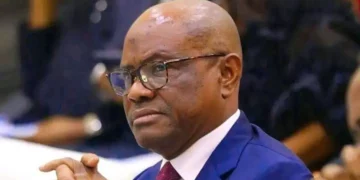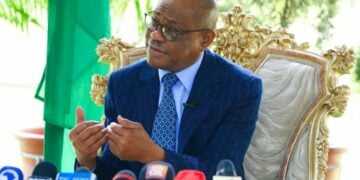Billionaire businessman, Femi Otedola, has applauded President Bola Tinubu over the introduction of a 15 per cent import tariff on petrol and diesel, a policy that has attracted criticism from some stakeholders, saying the move will safeguard investments in Nigeria’s refining and energy value chain.
Otedola, in a post on X, described the new tariff policy as a “crucial move” that would prevent Nigeria’s industrial and energy sectors from being undermined by cheaper foreign imports.
“I commend President Bola Ahmed Tinubu for his bold and decisive step in implementing a 15 per cent import tariff on petrol and diesel. This policy represents a crucial move towards safeguarding local industries that have made substantial investments in domestic production and refining capacity,” he stated.
He argued that the tariff would provide certainty for investors, support local refining, and help stabilise long-term pricing in the domestic market.
“This policy will also help establish a stable and sustainable pricing regime, contributing to greater control of inflation and long-term economic stability,” Otedola added.
According to him, Tinubu’s approach reflects the type of economic vision required to move Nigeria closer to achieving its target of a $1 trillion economy.
“President Tinubu’s ability to deploy policy as a catalyst for economic transformation is truly commendable. His focus on empowering local producers and promoting value addition within Nigeria exemplifies the type of visionary leadership required to steer our nation towards realising its ambition of becoming a $1 trillion economy,” he said.
Recall that President Tinubu had recently approved the 15 per cent ad-valorem duty on petrol and diesel imports on October 21, 2025, as part of measures to protect domestic refineries and stabilise the downstream market.
However, the policy has faced backlash from some industry groups and opposition commentators, including the African Democratic Congress (ADC)–who argued that it could worsen inflation and raise pump prices for consumers.
In a separate post on X, the President’s Special Adviser on Media and Public Communications, Sunday Dare, defended the policy, describing it as “a bridge, not a burden,” aimed at reshaping Nigeria’s petroleum sector and securing long-term economic stability. He maintained that the measure is designed to reduce reliance on imported fuel and fast-track Nigeria’s ambition of achieving energy independence





